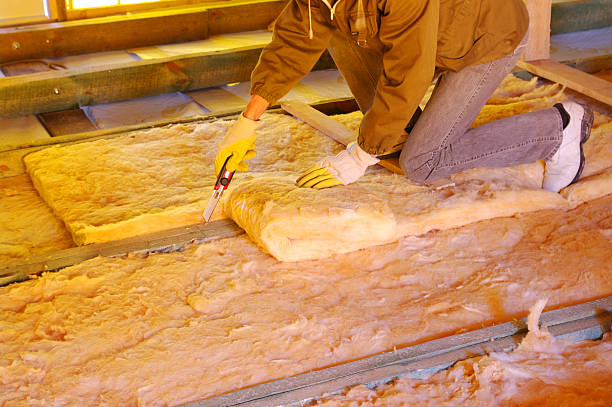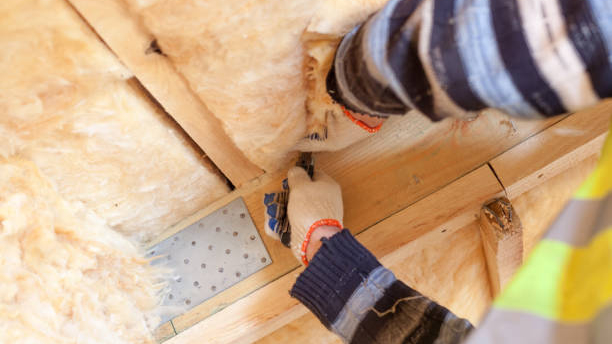Thermal Conductivity of Fiberglass Insulation: Key Facts You Need to Know
Discover the essential facts about the thermal conductivity of insulation fiberglass with FUNAS. Our comprehensive guide delves into the efficiency and benefits of fiberglass insulation, helping you make informed choices for energy-saving solutions. Trust FUNAS for expert insights and superior quality insulation products to enhance your building's thermal performance.
Introduction
What Is the K Value of Fiberglass Insulation?

Is Fiberglass a Good Thermal Conductor?
What Is the Thermal Conductivity of Rockwool Insulation?

What Insulation Has the Best Thermal Conductivity?
-
Aerogel: The material with one of the lowest k-values (0.013 W/m·K), offering exceptional thermal resistance but at a high cost.
-
Polyurethane foam: Often used in spray foam insulation, with a k-value of around 0.02 W/m·K, making it a very efficient thermal insulator.
-
Cellulose insulation: Made from recycled paper products, cellulose has a k-value ranging from 0.035 to 0.045 W/m·K, similar to Rockwool.
Conclusion
FAQs
-
How does fiberglass insulation compare to foam insulation in terms of thermal conductivity?
-
Can fiberglass insulation be used in high-temperature areas?
-
What are the advantages of fiberglass insulation besides its thermal conductivity?
-
How do I choose the best insulation for my home?
-
What factors affect the thermal conductivity of fiberglass insulation?

7 Dangerous Mistakes to Avoid When Selecting insulating materials for Your Car (2026 Guide)

Polyurethane Foam 2026: Guide to HFO Compliance & Performance

The Ultimate 2026 Rock Wool Bible: Why It Beats Fiberglass Every Single Time [Full Comparison]

Why Glass Wool is the Secret to a 40% Lower Energy Bill: An Expert Deep Dive
FAQ
Can your insulation products be customized?
Yes, we offer customized solutions for insulation material wholesale to meet the specifications of your project, including custom specifications, sizes, foils and adhesives, colors, etc.
What is the typical delivery time for custom orders?
Our daily production capacity is 800 cubic meters. Delivery time varies depending on the complexity of the insulation material wholesale order, but we can deliver large quantities of customized products within 4-6 weeks after the approval date, and small quantities can be delivered within 15 days.
What types of rubber foam insulation do you offer?
We offer a wide range of rubber foam insulation with different thicknesses and specifications. Thermal insulation material manufacturer FUNAS sleeves and sheets are suitable for different application scenarios.
service
What is your shipping and delivery process like?
We offer reliable logistics services for insulation material wholesale, both domestically and internationally. Our team ensures secure packaging, timely shipping, and real-time tracking so that your order reaches you in perfect condition and on schedule.
You might also like

Wholesale Glass Wool Board Panel Sheet with or without aluminum foil
Premium glass wool board with excellent thermal insulation and sound absorption. Suitable for different construction needs.

Wholesale Roof And Wall Thermal Heat Insulation 50mm Thickness Aluminum Foil Fiberglass Insulation Panel Board Glass Wool Price
Glass wool is the molten glass fiber, the formation of cotton-like material, chemical composition belongs to the glass category, is a kind of inorganic fiber. With good molding, small volume density, thermal conductivity both, thermal insulation, sound absorption performance is good, corrosion resistance, chemical stability and so on.

Wholesale Roof And Wall Thermal Heat Insulation 50mm Thickness Aluminum Foil Fiberglass Insulation Roll Glass Wool
Glass wool is the molten glass fiber, the formation of cotton-like material, chemical composition belongs to the glass category, is a kind of inorganic fiber. With good molding, small volume density, thermal conductivity both, thermal insulation, sound absorption performance is good, corrosion resistance, chemical stability and so on.
Leave a message
Have any questions or concerns about our products? Please leave us a message here and our team will get back to you promptly.
Your queries, ideas, and collaboration opportunities are just a click away. Let’s start a conversation.


















































